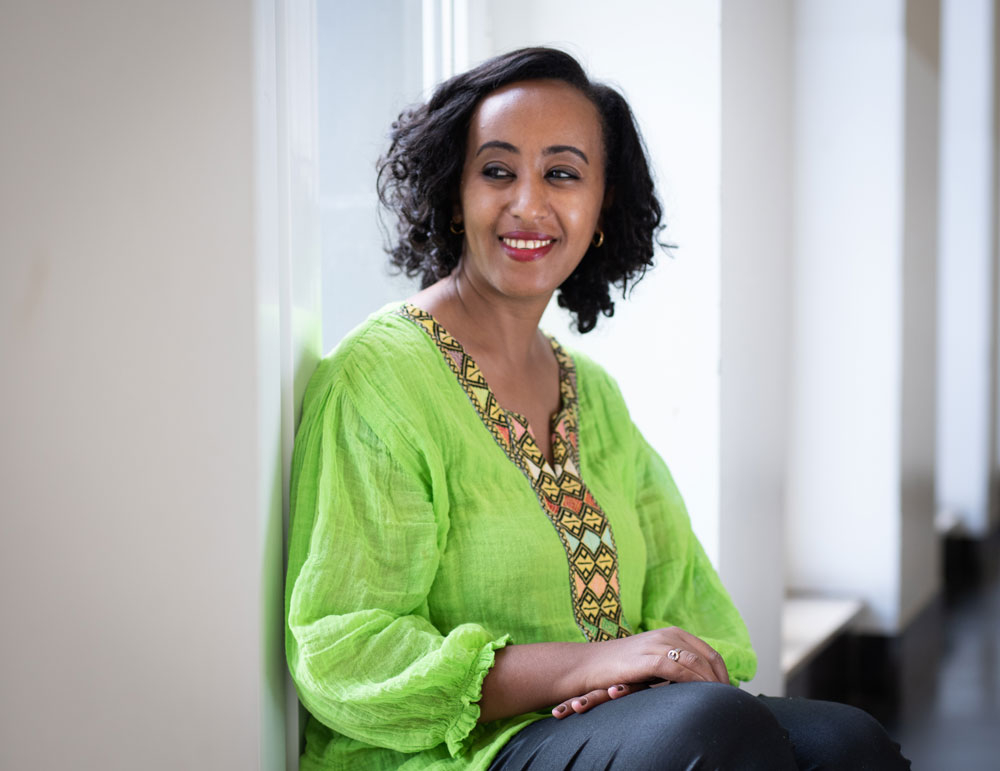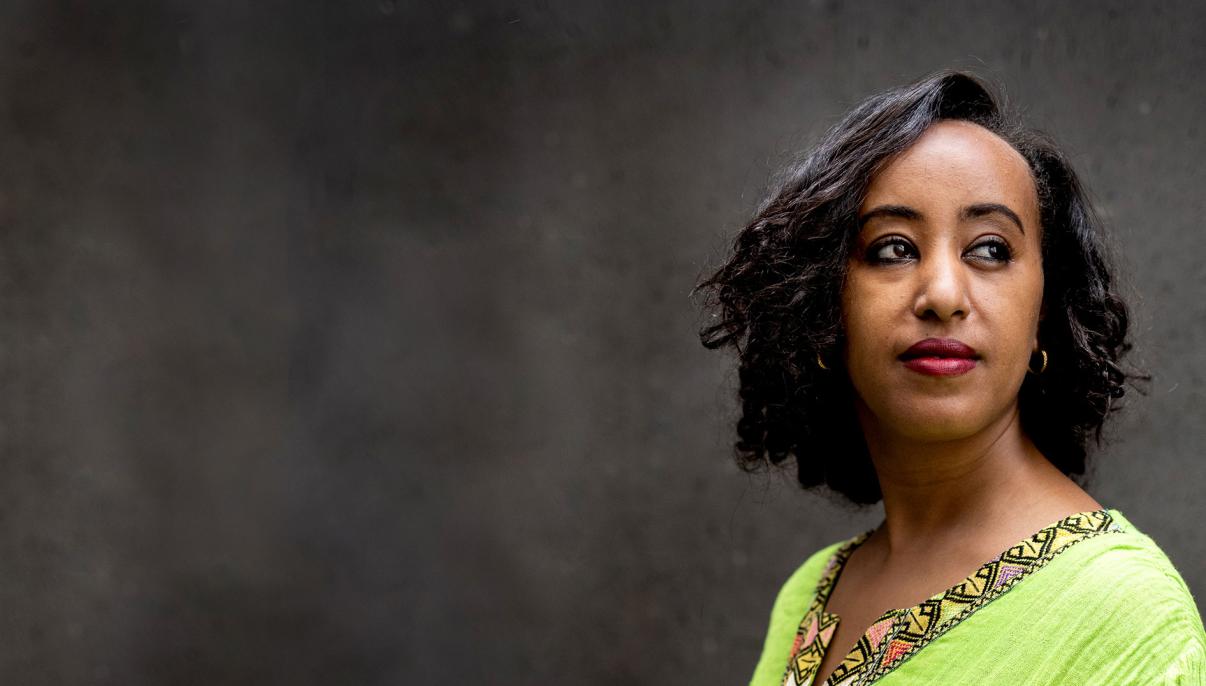
Thekla Ehling
On Their Way to a Better Life
Migration has many neglected stories: Anthropologist Meron Zeleke Eresso looks at the world of Ethiopian transit migrant women in the Horn of Africa.
Ahriba is a slum in the port city of Djibouti in the Horn of Africa. The district is a chaotic cluster of corrugated iron huts and cardboard crates – and serves as a temporary home to thousands of migrants making their way from Ethiopia via Djibouti to the Gulf States. Meron Zeleke Eresso has rented a small room here. Cramped together on just 12 square meters, the researcher shares the room with five other women, all from Ethiopia and all on their way to a new life far beyond their homeland. They sleep on mattresses on the floor, and cook on a small coal-fired stove.
An important part of the day is when the women sit together and brew their Ethiopian coffee – an opportunity to relate their stories. One woman tells of how she left her newborn baby behind. Another suffers from chronic kidney disease. And yet: The desire to support their families is so strong that they give no thought to their own well-being. Although the neighboring country of Djibouti is small, its location on the Gulf of Aden makes it the gateway to the Gulf States. About 3,500 migrants pass through Djibouti every month. 80 percent come from Ethiopia; and a large proportion of them are women.
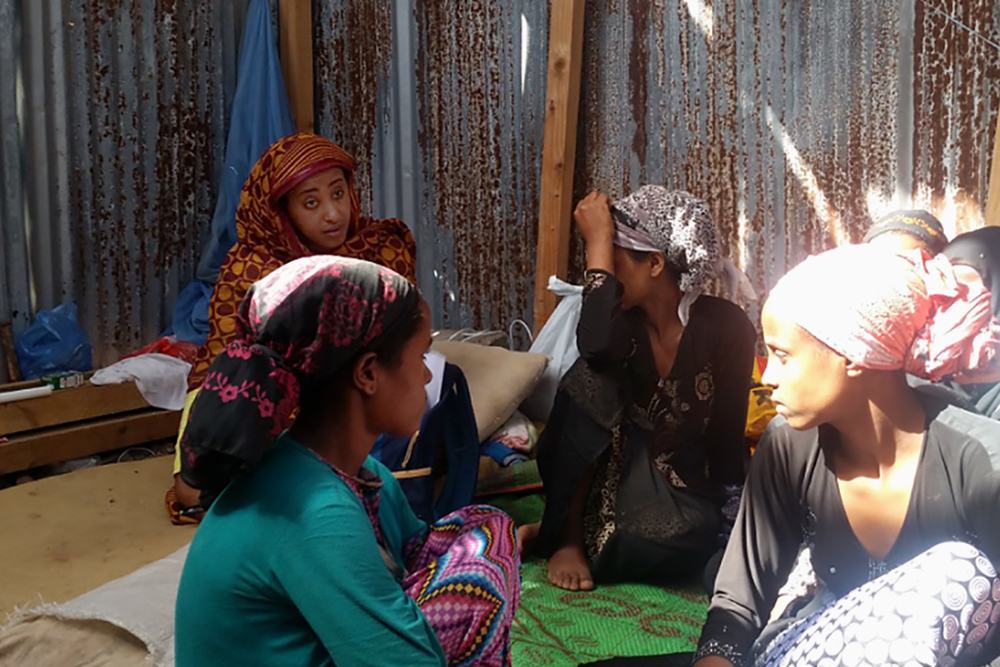
Everywhere in Djibouti small groups of migrant women are waiting for an opportunity to travel on.
Common ground creates trust
For Meron Zeleke Eresso, the daily coffee rounds with her roommates are not only moving moments, but an essential part of her field research. The women trust her because they have a lot in common. Eresso is also Ethiopian, mother of three, and grew up in the same world where the dream of a life beyond the homeland is so omnipresent. In Ethiopia, one in three households has a history of migration. Eresso's family is no exception: Her aunts worked in the Gulf States for many years. She has been familiar with the stories surrounding migration since her childhood. "When you are young, you don't question things, you just accept them as they are," she says. "But I wanted to understand the phenomenon in depth, and that’s why I'm doing research on migration."
Meron Zeleke Eresso is an empathic anthropologist with a strong sense of social contexts. As a Junior Fellow under the "Knowledge for Tomorrow" funding initiative, she researched the connections between religion and conflict. Later, as a Senior Fellow, she wanted to contribute to a better understanding of the phenomenon of migration in her country – and the issue remains important to her. "The topic is of great social relevance," she says, "We experience it every day in Ethiopia, and the media are also full of it." The images have burned themselves into the collective memory. There is the video which shows the killing of 28 Ethiopian transit migrants by the IS in Libya in April 2015; the images of the dead bodies of migrated Ethiopians found in the Djibouti desert in February 2016; the mass deportation of 160,000 Ethiopian women from Saudi Arabia in 2014, which was accompanied by rape and maltreatment. Hardly anyone in Ethiopia is unaware of such events; and many people were in one way or another acquainted with the victims.
More than just victims
Despite all the attention given to the topic of migration, Eresso sees a large gap in the media and scientific representation of the phenomenon. Too little is about the women involved – too much about the abstract flow of migration towards Europe. In its gender-oriented approach, which with the local focus on the route via Djibouti to the Gulf States consciously sets a counterpoint to the Europe-centered portrayal of migration ambitions, Eresso is primarily concerned with questions like: What compels the young women to leave? Where do they come from? What are their plans and strategies for achieving a new life?
"Migration stories are usually told in a way that makes the migrant women appear as victims of circumstances", she says, "but this makes us blind to everything else that defines these people and the world they live in: Their strong will, their thoughts, their alternative options. I would like to take a different perspective and present the women as self-determined personalities who have their own stories and are purposefully pursuing a conscious plan".
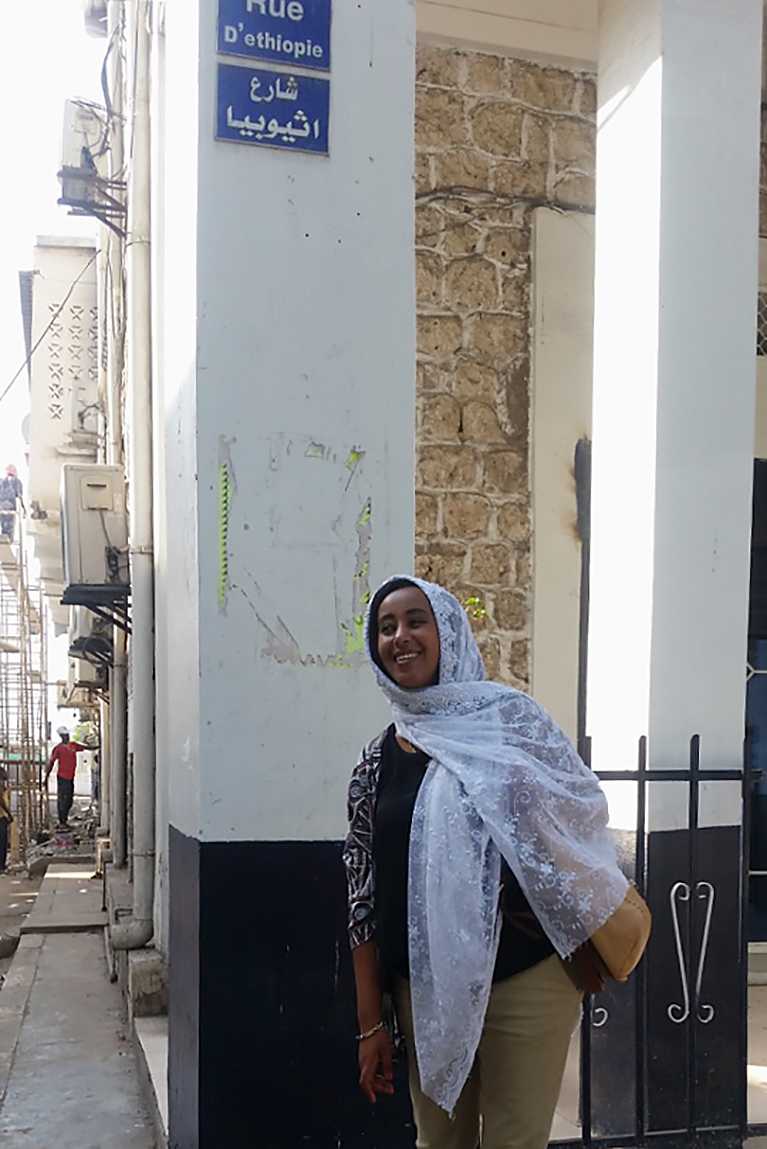
The researcher in the streets of Djibouti.
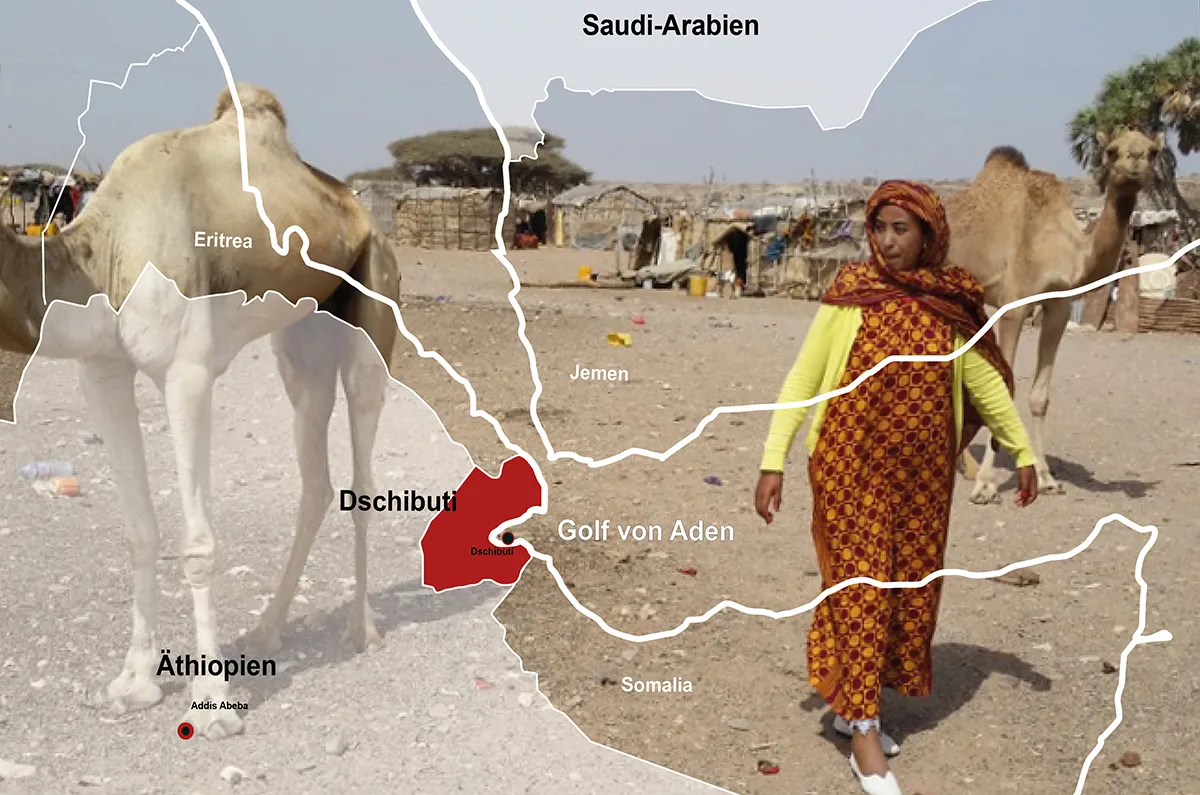
Investigations in the village of Fanatahiru in northern Djibouti.
To do justice to this approach, Eresso not only spent several months with the women in Djibouti, but also did research with their families in their home villages – as a mother of three, quite an organizational and logistical challenge for her. Despite this, she was still able to carry out her extensive research; not least because the Foundation's funding conditions allowed her to spend some of the project budget on childcare. "I could never have started out on such a research project without this kind of support", she says, "It would have been far too risky to have taken my children with me".
The benefits of networking
Earlier on in her career, the support provided by the Foundation’s Africa Initiative had already opened doors for her. After completing her Master's degree in Social Anthropology at the University of Addis Ababa, Eresso travelled to Germany and earned her doctorate at the University of Bayreuth. "After this, when I returned to Ethiopia it was like going into the unknown. I was not connected there and had no idea about how to continue." Receiving a fellowship made it much easier for her to gain a foothold in the scientific structures in her home country. As the holder of a fellowship, the young anthropologist brought her own money to implement her research project – and being internationally networked was also an advantage.
The positive effects on her career are now gratifyingly clear: In 2018 she was appointed Associate Professor at the Center for Human Rights at the University of Addis Ababa – in Ethiopia, a huge success for a researcher of her age. And she has been consulted by the African Union as an expert on migration. "The visibility I gained through the possibility of international networking within the fellowship has helped me a lot to establish myself academically," says Meron Zeleke Eresso. "I am incredibly grateful that I was able to be part of the Africa Initiative and to experience this support".
With her successful application for a two-year extension of the Senior Fellowship to deepen her migration research, Dr. Eresso has made the most of the Foundation’s funding offer, which also aims at capacity building in Africa. And the common path does not end there: Entering a new phase of this success story, Meron Zeleke Eresso is now involved in a large research project on the topic of social inequality. (see box) She is working together with colleagues from several countries, supported in the Volkswagen Foundation's initiative "Global Issues – Integrating different Perspectives".
